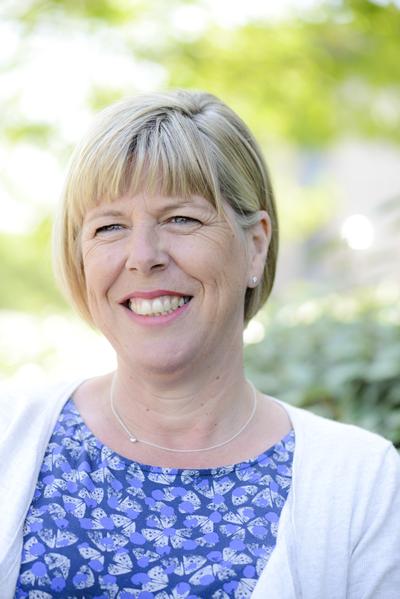Sarah Bailey MPhil PhD Health Sciences, 2017
NIHR clinical doctoral research fellow

I feel very fortunate, this is a fantastic opportunity to improve services and care, which is absolutely fundamental to the NHS, and I’m doing something I never thought or dreamed I would be.
I have spent my whole career in the NHS, from when I first qualified as a nurse after leaving school, going on to do my midwifery training and practicing as a midwife for over 15 years, and then on to do my Health Visitor training.
It was at this point I felt it was time to develop my academic work, so I took a postgraduate diploma. This ignited a real passion and love for academia and offered me a real chance to give evidence-based care to my patients.
After qualifying as a health visitor in 2002 I completed a dissertation to enable me to progress from a PG Diploma to a self-funded Masters and my interest in research started to develop.
In 2009 I came to Southampton as a senior research nurse. With a colleague I helped develop the reproductive health research team at the Princess Anne Hospital, coordinating a portfolio of research studies, and was promoted to senior research sister.
It was in this role whilst I was working on a research study investigating a potential treatment for recurrent miscarriage that I began looking at the clinical care given to this group of patients. It was evident there was a clear gap in the care of these women and this inspired me to undertake my own research in this area.
I developed a research protocol and applied for NIHR funding, not thinking I’d get it in a million years. But with tremendous support from the Faculty of Health Sciences and my supervisors, I got the interview. The application and interview process was incredibly hard work, but so worth doing!
My research is about investigating the development of supportive coping interventions for those women who experience recurrent miscarriage, as from my own observations, care provision in this area is often limited and these women are often left to cope alone with any anxiety or worry they may feel.
I’m testing the feasibility of using a self-help card based on positive reappraisal to help these women sustain their ability to cope and improve their psychological wellbeing during the early stages of any subsequent pregnancies, a time period they often find very worrying. If it goes well I plan to run a large scale definitive study.
My clinical role involves coordinating the care of recurrent miscarriage patients and combining the clinical and academic role can be challenging work. Sometimes I do feel overwhelmed, but I’m determined to make it better for my patients, and that’s the benefit of a clinical academic role.
If I’ve had a really hard day, one of my patients will say something positive, and it will just reaffirm why I am doing this.
My future plans are to carry on in a clinical academic role at the forefront of care for this group of women, and I have every intention of applying to the NIHR for further funding to continue my studies.